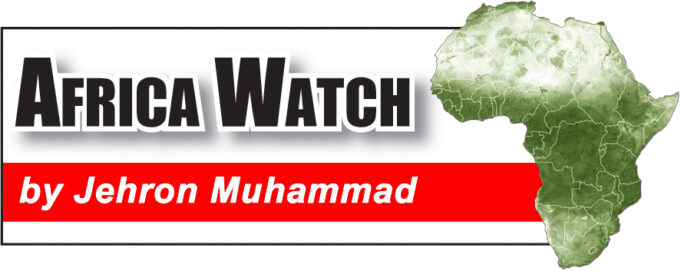Getting rid of incentives for military takeovers in Africa is something regional organizations like the Economic Community of West Africa (ECOWAS) and the Intergovernmental Authority on Development (IGAD) as well as the 55 member state African Union (AU) have not done well—and in some cases their responses have been miserable failures.
The eight member state IGAD, composed of Djibouti, Eritrea, Ethiopia, Somalia, Sudan, South Sudan, Kenya and Uganda, sat by while Sudan Prime Minister and IGAD chair Abdalla Hamdok was arrested after a Oct. 25 military coup by Sudan’s Sovereign Council Chief General Abdel Fattah al-Burhan.
IGAD’s toothless gesture? A statement from its executive secretary strongly condemning the attempt to undermine Sudan’s transitional government and calling for “the immediate release” of the prime minister and “all political leaders.”
ECOWAS, apparently having more teeth, imposed sanctions on coup plotters in Guinea and Mali. According to the Premium Times, ECOWAS told Mali’s “interim government” that took power after the military overthrow of President Ibrahim Boubacar Keita in August 2020, “the Authority decides to impose sanctions with immediate effect against individuals and groups who have been identified, including the entire transition authorities and the other transition institutions.”
Guinea’s interim president, Mamadi Doumbouya, who led a coup, has promised a transition back to democracy but has not said when he will organize elections.
ECOWAS’ response has been to appoint Ghanaian diplomat Mohamed Ibn Chambas as a special envoy to engage Guinea’s transitional leaders.
ECOWAS also “decided to uphold the suspension of the Republic of Guinea from all ECOWAS governing bodies as well as (a) travel ban and freeze on financial assets imposed on the members of the CNRD (National Committee for Rally and Development) and their family members until constitutional order is restored.”
According to a 2020 report in the Daily Maverick, censuring leaders for coups is only a first step, “African and international actors should tackle the poor quality of democracy and governance.”
The debate about democracy and governance in Africa has evolved. “Priorities have shifted to the quality of electoral processes, the value of term limits, but also legitimacy, performance and accountability in political and economic governance. Social discontent, largely expressed through protest, has been met with varying degrees of suppression, co-option and consolidation of the status quo,” said the Institute for Security Studies.
Sudan’s internet blackout is a case in point. Political activist and co-founder of Intervention Science and Technology Think Tank for People Center Development, Muzan Alneel, rightfully argues, “Full revolution has no half measures.”
Appearing on Al-Jazeera’s Stream with host Femi Oke, Alneel said, “If the organized struggle occurring in various neighborhoods throughout the capital city Khartoum, and various communities throughout the country had access to the internet they could tell our story.
“If we had access to the internet, we’d be sharing this ourselves and sharing these experiences with other revolutionary nations … .”
Resolutions from neighborhood committees, some saying “no compromise with the military,” within hours were “adopted by more and more committees,” added Alneel. “This is how revolution works.”
During a Nov. 10 press conference, remarks on behalf of the Forces of Freedom and Change, spokesman Alwathiq Elbereir rejected Sudanese coup leaders, saying there would be no meeting with the military.
“We did not break the partnership … and we must return to the constitutional document,” said the spokesman, adding that the coup happened after civilians brought some contentious issues to the table.
“The coup does not represent the military institution,” he added, saying the coalition would not accept the return of Burhan in the head of state position he held before the illegal military coup.
According to an analysis published in the Daily Champion, “In many cases, the world umbrella body, the United Nations, (and for that matter the AU) sits idly by, when coups happen, only to pass worthless resolutions of condemnation. Former colonial powers, such as, the French, the British and the Americans (and in the case of Sudan, the UAE, Egypt, Saudi Arabia and Israel) are no better off. Rather than applying the muscles which we all know they possess, they go public with heavy criticisms against coupists, but, behind the scenes, it’s business as usual—buying uranium or oil or bidding for lucrative arms contracts.”
Follow @jehronmuhammad on Twitter.













